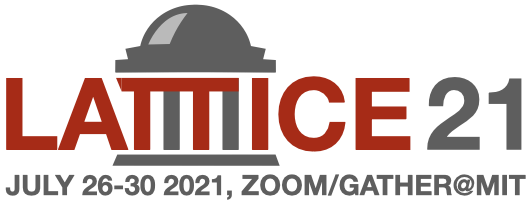Speaker
Description
If and how gauge theories thermalize is an unanswered question. Partly, this is due to the inability of lattice gauge theory (LGT) simulations to simulate out-of-equilibrium quantum dynamics on classical computers, but also due the difficulty of defining entanglement entropy in lattice gauge theories and finding schemes for its practical computation.
In this work, we study real-time thermalization dynamics of a $Z_2$ LGT in 2+1d using exact diagonalization. We develop a dual formulation for the reduced density operator, which allows us to compute the Entanglement Spectrum (ES) during the time evolution. We show that, in the regime where the system has topological order, it agrees with the low-energy effective Hamiltonian that describes the system in the presence of an open boundary. This finding is analogous to Li & Haldane's conjecture about the ES of fractional quantum Hall states, which we extend here to lattice gauge theories. Studying quench dynamics, we then extract the entanglement Hamiltonian of non-equilibrium states during time evolution using a variational scheme.
Our formulation can be generalized to more complicated Abelian and non-Abelian lattice gauge theories and may allow future quantum digital computers and analog quantum simulators to uncover the thermalization dynamics e.g. of Quantum Chromodynamics from first principles.




